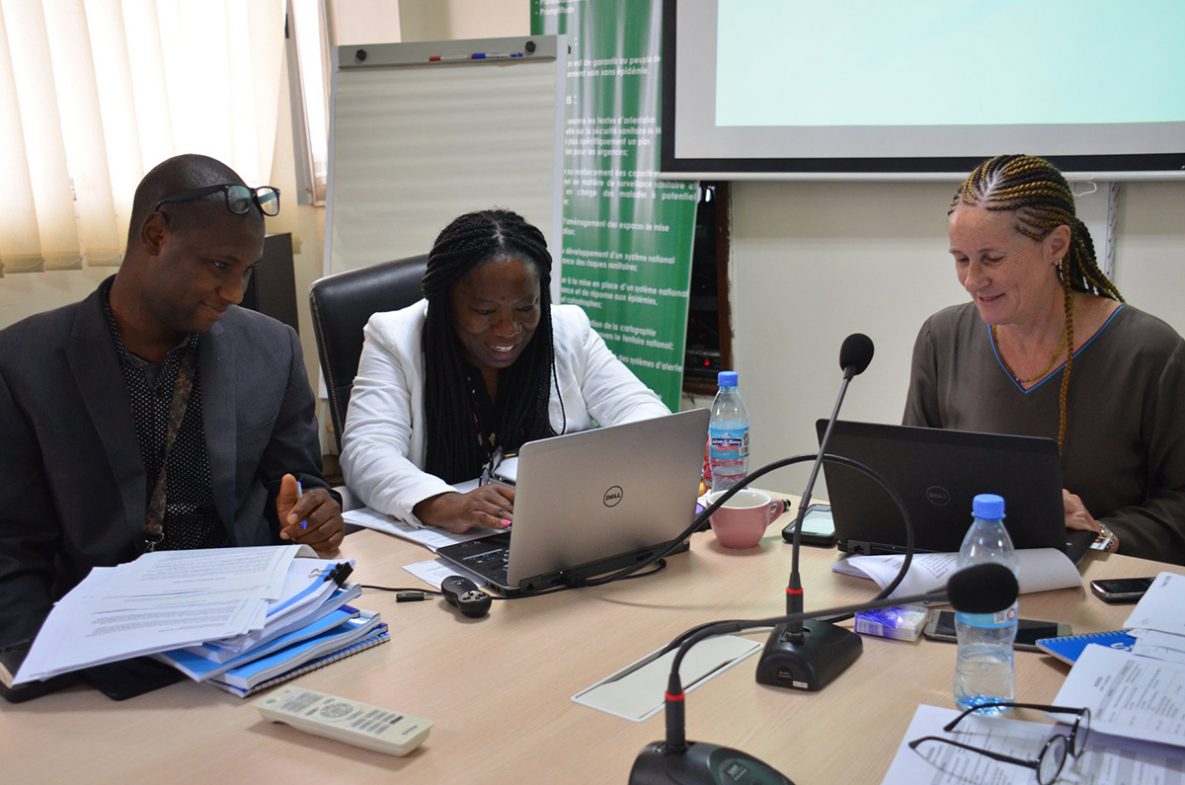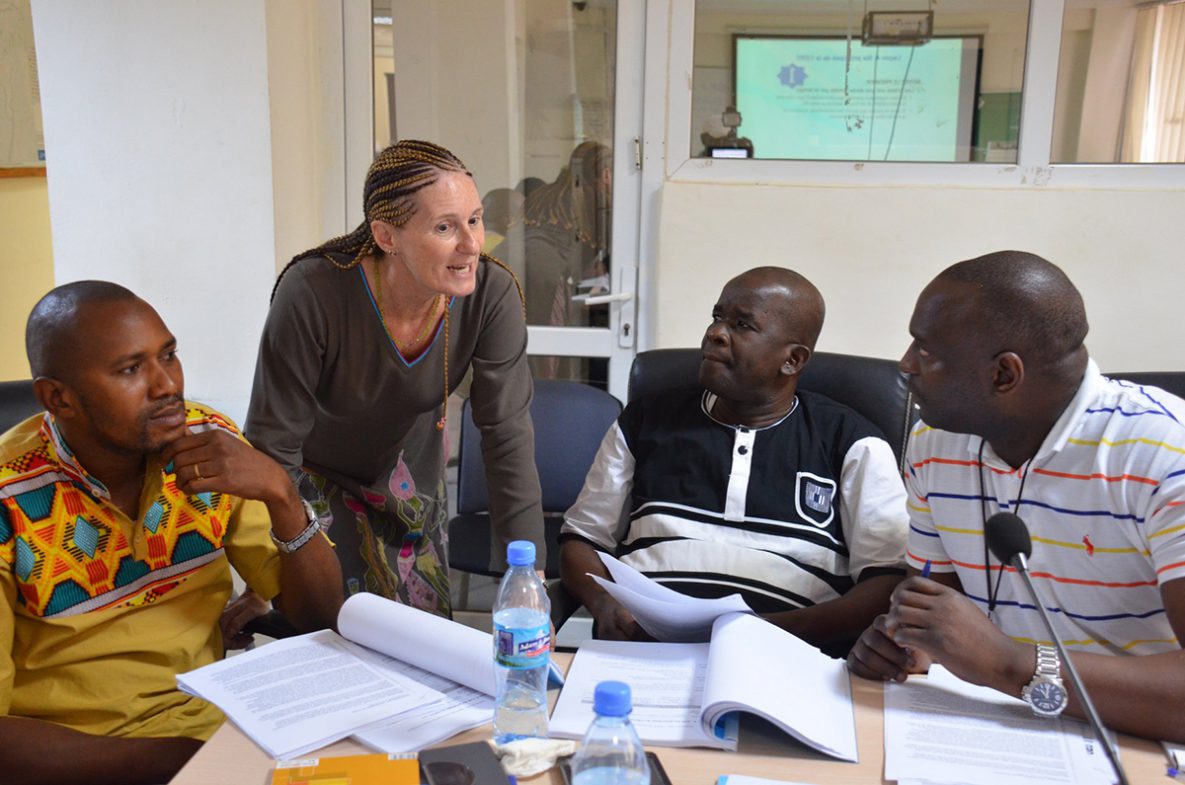Crisis and Emergency Risk Communication Training in Guinea
by Belen Moran Bradley

OPHPR Loretta Jackson-Brown and CDC Guinea Country Director Lise Martel led the Crisis and Emergency Risk Communication training.
Effective communication during an outbreak response is an essential component of a comprehensive emergency response plan. Crisis and Emergency Risk Communication (CERC) is a capacity included in the International Health Regulations and assessed as part of a country’s capacity to respond to health threats.
“During the 2014-2016 Ebola Response, Guinea realized the important role communication plays during a disease outbreak from providing updates on the crisis to sharing recommendations that don’t conflict with cultural norms. I had taken the CDC Crisis and Emergency Risk Communication training and knew it would be a great resource to share with the Ministry of Health,” said CDC Guinea country Lise Martel, PhD.
The three-day highly interactive Crisis and Emergency Risk Communication training for 30 health communication specialists from the Ministry of Health and its partners took place July 16-18. OPHPR’s Loretta Jackson-Brown, PhD and Martel served as trainers.
The course, developed by CDC, focused on helping the participants develop the skills needed to provide information that allows an individual, stakeholder, or a community to make the best possible decisions about their well-being during a crisis.
The training discussed the psychological factors that affect a person’s understanding of messages, the importance of tailoring messages for the targeted audience, and the use of various communication channels such as printed materials, radio, TV, social media, and community meetings. The training also provided tips for spokespersons to more effectively work with the media and deal with rumors.
Following the three-day training, participants from the National Agency for Health Security (ANSS in French) of the Ministry of Health took the theory to practice. The ANSS developed strategic and operational crisis communication plans at the national level. It also started developing a database of pre-developed messages in French and in other local languages for the 14 priority diseases of epidemic potential in Guinea that they can then tailor during a response. Once finalized, the ANSS is planning to offer a condensed version of the CERC course at the district level and guide the districts in the development of their own plans.

CDC Guinea Country Director with some of the health communication specialists who participated in the Crisis and Emergency Risk Communication training.